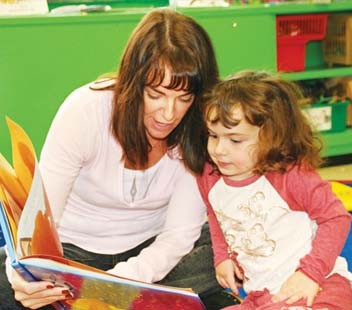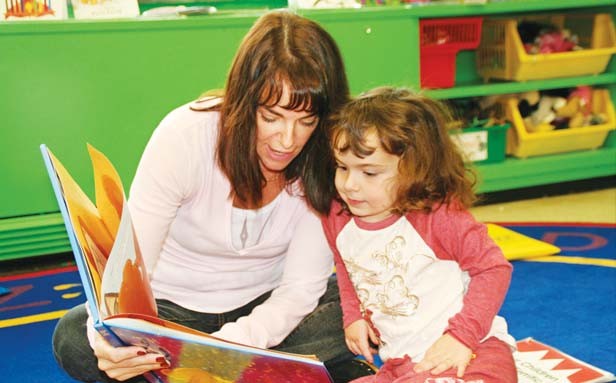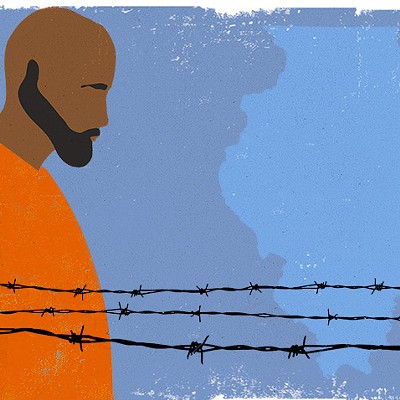Although times are difficult for social services in Illinois, a statewide advocacy group thinks that it is still possible to positively affect the lives of children.
Voices for Illinois Children, a nonpartisan advocacy group which uses policy analysis and research to advance the lives of children, families and communities in Illinois, hosted its annual Illinois Kids Count Symposium March 22 in Chicago. The program examined statistical findings in areas of children’s education, poverty, health and trauma.
Sylvia Puente, director of the Latino Policy Forum and chair of the Education Funding Advisory Board, was part of a panel of specialists. Puente focused on the disparity created by Illinois’ reliance on property taxes to fund education. She said schools in property-rich districts can afford to invest $21,000 in each student annually, while those in poorer districts cannot.
EFAB has recommended an $8,672 per student investment for the state, which would total $9 billion in state funding for the year 2013. That would double the current funding recommendation of $4.4 billion. She said it infuriates her that the recommendation is considered a pipe dream and the classification only speaks to how much Illinois has disinvested in children.
“I think we’re paying the price of legislative inaction… the fact that we have a $98 billion pension deficit. That’s all coming to attention now because we have underfunded for so long,” Puente said. “The irresponsibility of their actions in the past has put us in the fiscal crisis that we’re in now.”
She said the General Assembly has not met its own education funding recommendation, as it falls short of the $4.4 billion to $4.2 billion. The legislature hasn’t been able to afford EFAB’s recommendation since 2003, with the gap widening every year.
She said the state has reduced spending in education every year by nearly $1 billion, while two-thirds of school districts are in deficit spending. In addition, more than 6,000 educators have been laid off.
She said it would take another $4 billion to change the funding problems with education in Illinois. “That’s what it’s going to take to properly fund education. When the state is $6 billion to $8 billion behind in paying its debt and has $98 billion in pension tax liability we are being forced to make impossible choices,” she said. “It is our children and our families and our most vulnerable families who are suffering the most. What it will take is remedying the pension crisis. What it will take is an extension of the income tax increase. What it will take is fiscal responsibility on the part of our lawmakers.”
While Puente concentrated on fiscal analysis, Eugene Griffin, assistant professor and associate director of the Mental Health Services and Policy Program at Northwestern University, looked at what professionals could do differently in these pressing times.
“We’re making choices. It’s possible to fund it [child services]; we just have to prioritize this over other things,” said Griffin. He thinks that funding has been limited for a while, and educators and social service workers should focus more on pooling their resources together so they can have a greater effect.
“People have always been willing to talk about how they understand kids and what they think is best for them. I just think we don’t all coordinate and work in the same direction, partly because of the underfunding.”
Gaylord Gieseke, president of Voices for Illinois Children, left the audience with words of encouragement, honesty and the idea that things may not get easier, but educators and other professionals are responsible for making sure the lives of children in Illinois are changed for the better.
“Choices exist,” she said. “We think about the state fiscal crisis and we hear the General Assembly and others throw their hands up and say, ‘Well we have no choices, we simply have to make these cuts and that’s what we have to do,’ ” she said. “Budgets are choices; everything in a budget is a choice point. Collective action is a choice. Sitting down and saying I can’t is a choice. Standing up and saying, ‘Oh you must and you will, and here’s why, and here’s good information to explain why this is so important – those are all choices.’ So collectively I hope we can cheer each other on to say we still have a whole range of choices and we can hold our elected officials accountable for the choices that they make.”
Contact Jacqueline Muhammad at [email protected]




















